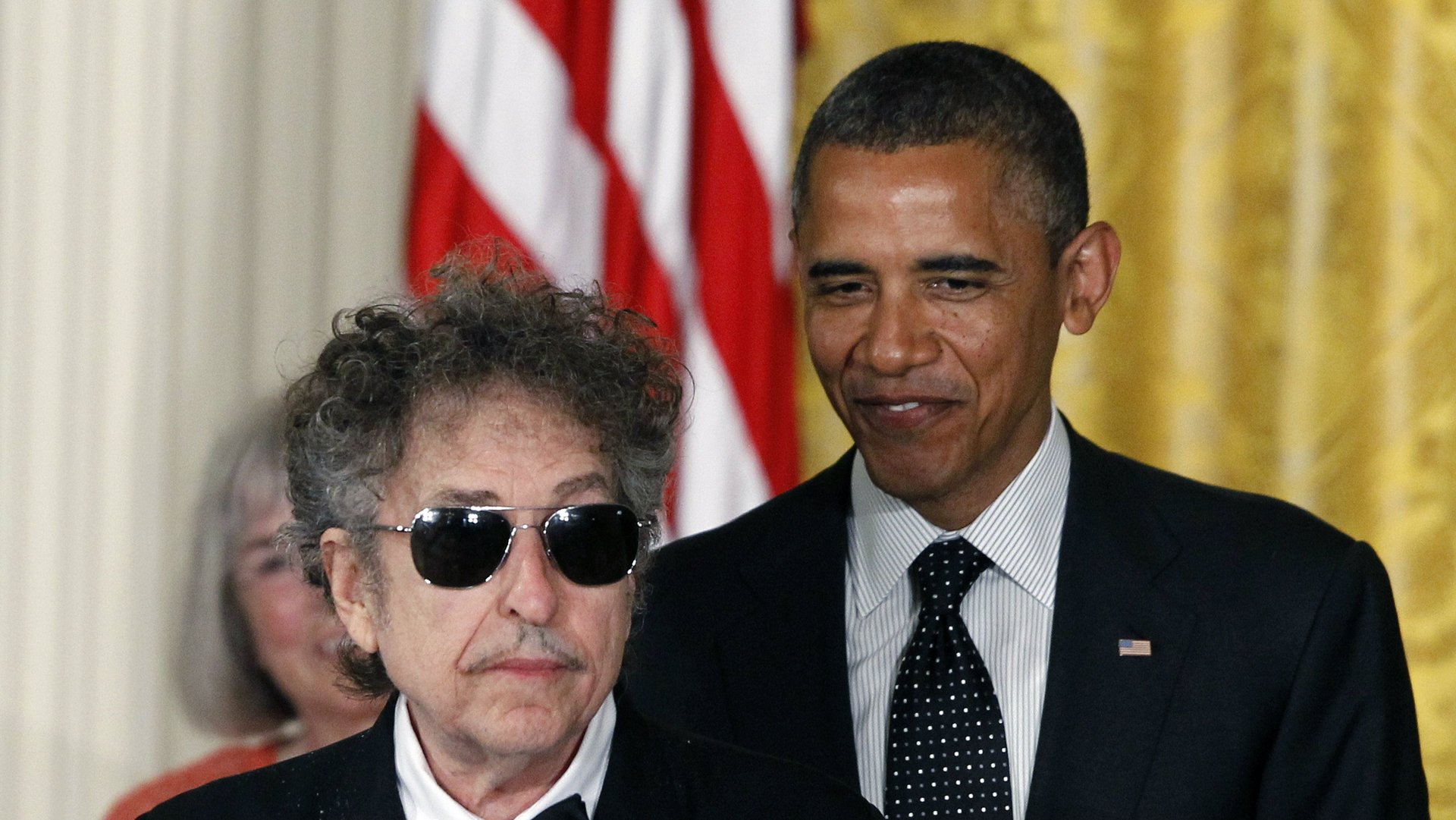Bob Dylan’s views on the economy are just like his lyrics: completely indecipherable
Bob Dylan’s songs often feature surreal and cryptic lyrics. Many academic papers and even entire college courses have been devoted to trying to interpret them.


Bob Dylan’s songs often feature surreal and cryptic lyrics. Many academic papers and even entire college courses have been devoted to trying to interpret them.
The legendary singer songwriter is also extremely commercially savvy. He has a new album coming out next month, and in what might prove to be a clever stunt, he’s giving away 50,000 CD copies of it to members of the AARP (American Association of Retired People).
This is significant for the music industry, and we’ll get to that. But comments Dylan made in an interview with AARP Magazine to promote the album and the giveaway are arguably even more interesting:
The government’s not going to create jobs. It doesn’t have to. People have to create jobs, and these big billionaires are the ones who can do it.
This sounds like classic conservative economics, a surprising thing for the anti-establishment hero of the 1960s to say. Indeed, one libertarian blog immediately seized on the comment. (To be fair, Dylan has spent the better part of the past 50 years trying to distance himself from his original persona. In recent years he’s embraced corporate sponsorships in a way that would have been unthinkable not that long ago. Last year, the great man was even featured in a Super Bowl commercial.)
But Dylan went on to point out the problem with relying on billionaires to create jobs: “We don’t see that happening.” And sure enough, subsequent comments are much more consistent with his progressive image. They imply that, like many people, he is quite concerned about rising inequality in the US.
We see crime and inner cities exploding with people who have nothing to do, turning to drink and drugs. They could all have work created for them by all these hotshot billionaires. For sure that would create lot of happiness. Now, I’m not saying they have to — I’m not talking about communism — but what do they [billionaires] do with their money?
Instead of putting his stock in actual policy proposals (paywall) designed to reduce inequality, Dylan seems to think the only way to deal with the issue to hope billionaires have a moral epiphany. ”[N]o one can tell them what to do. God’s got to lead them,” he says.
Still, Dylan’s music industry instincts have never steered him wrong. His album giveaway is the second such move by a music megastar in recent months. It’s much more targeted than U2’s (highly lucrative but heavily criticized) deal with Apple to forcibly implant its latest album on millions of iPhones last year; although Dylan’s last studio album, Tempest, only sold 274,000 copies in the US, according to Nielsen SoundScan, so it’s still a big deal.
It represents more compelling evidence that the era of music ownership is drawing to a close. It is being rapidly replaced by music-renting through subscription-based streaming services. Artists are being forced to make most of their money out of live performing, something Dylan is more than OK with, since he has been (quite incredibly) on a never-ending tour since 1988.
So clearly Dylan understands the music business better than almost anyone else. But when it comes economics, his views are a bit more difficult to understand. Just like many of his songs.